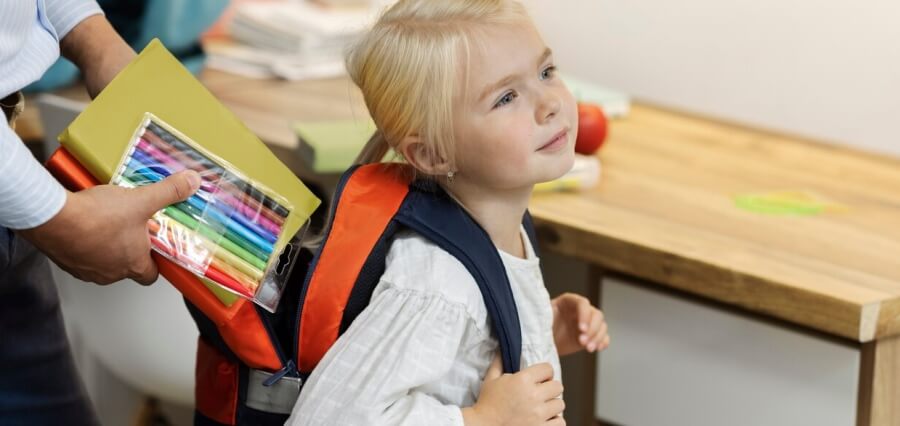The transition to school is a significant milestone in a child’s life, marking the beginning of a new chapter in their educational journey. This transition can evoke a mixture of emotions, not only for the child but for the entire family. Preparing children for their first day at nursery school involves preparing them emotionally, as well as doing things like establishing routines, and fostering independence. This guide offers practical advice for parents in the United Kingdom to help their children embark on this new adventure with confidence and enthusiasm.
Emotional Preparation
The emotional readiness of a child is paramount in ensuring a smooth transition to school. Parents can play a crucial role in this by:
Talking About School Positively: Discuss the exciting aspects of going to school, such as making new friends, learning new things, and engaging in fun activities.
Reading Books About School: Children’s books about starting school can help normalise the experience and spark conversations about feelings and expectations.
Expressing Confidence: Children look to their parents for reassurance. Expressing confidence in their ability to handle school can boost their self-esteem.
Establishing Routines
A predictable routine can provide a sense of security for children, helping them adjust to the new demands of school life:
Bedtime Routines: Establishing a consistent bedtime routine ensures that children are well-rested and ready for the day ahead.
Morning Routines: A calm and organised morning routine can set a positive tone for the day, reducing stress for both children and parents.
Practising the School Run: Familiarising children with the route to school and the mode of transportation can help alleviate any anxiety about the journey.
Fostering Independence
School requires children to manage tasks with greater independence. Parents can encourage this by:
Self-care Skills: Encourage children to dress themselves, use the toilet independently, and manage their personal belongings.
Eating Independently: Practise having meals with utensils similar to those used at school to build confidence in eating independently.
Responsibility for Belongings: Teach children to take responsibility for their school bag, lunch box, and other personal items.
Visiting the School
If possible, visit the school with your child before the term begins. Many schools offer orientation days or tours for new students and their families. This can help familiarise your child with the school environment, meet some of their teachers, and possibly even make new friends.
Encouraging Social Skills
Developing social skills is crucial for children to feel comfortable in their new social environment. Arrange playdates with peers who will be attending the same school, if possible, to build friendships in advance. As a parent, you can also discuss and role-play scenarios they might encounter at school, such as sharing, taking turns, and asking for help. This will help empower your little ones to deal with the challenges they encounter and give them the self-confidence to thrive.
Embracing the New Chapter
Preparation lays the groundwork for a positive attitude towards education, fostering a sense of excitement and curiosity about learning. Parents play a pivotal role in this journey, serving as the primary source of comfort, guidance, and encouragement. The strategies outlined—focusing on emotional preparation, establishing routines, fostering independence, visiting the school, and encouraging social skills—are crucial components of a successful transition. However, the process doesn’t end on the first day of school. It’s an ongoing dialogue, a continuous exchange of support and understanding between parents and children.
As children navigate their initial days and weeks at school, they may encounter a range of emotions and experiences. Some may adapt quickly, while others may need more time and reassurance. It’s important for parents to remain patient, offering a listening ear and empathetic support. Celebrating small achievements and addressing challenges with a positive and constructive approach can significantly impact a child’s ability to cope with and enjoy their new environment. Moreover, establishing a strong partnership with teachers and school staff can enhance a child’s school experience. Open communication with educators allows parents to stay informed about their child’s progress, share insights about their child’s needs, and collaborate on strategies to support their learning and development.
In embracing this new chapter, it’s crucial to recognize that each child’s journey is unique. There’s no one-size-fits-all approach to starting school. What matters most is providing a stable foundation of love, support, and encouragement, enabling children to approach school with confidence and resilience. By doing so, parents can help their children view school not just as a place of learning, but as a venue for discovery, friendship, and personal growth.


